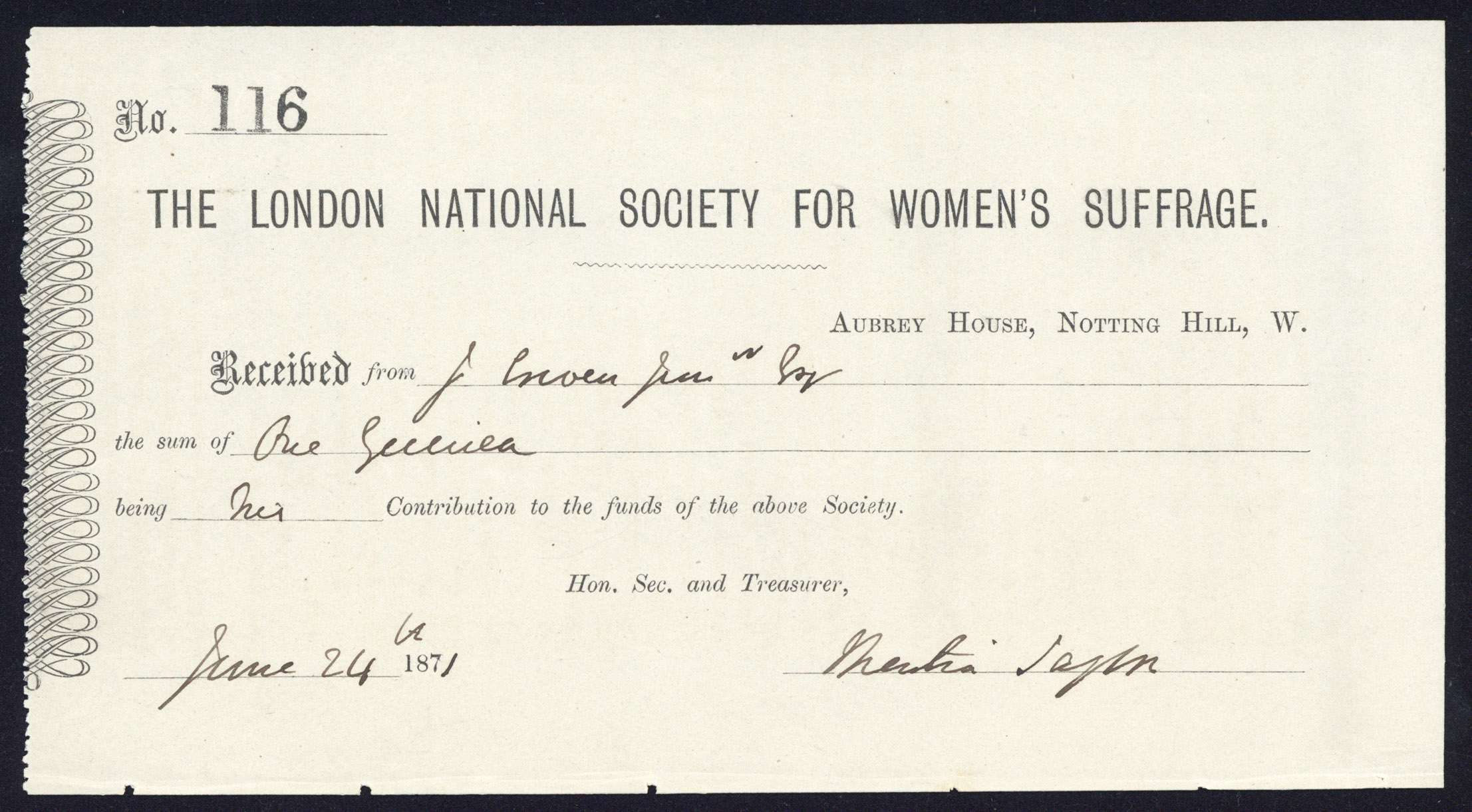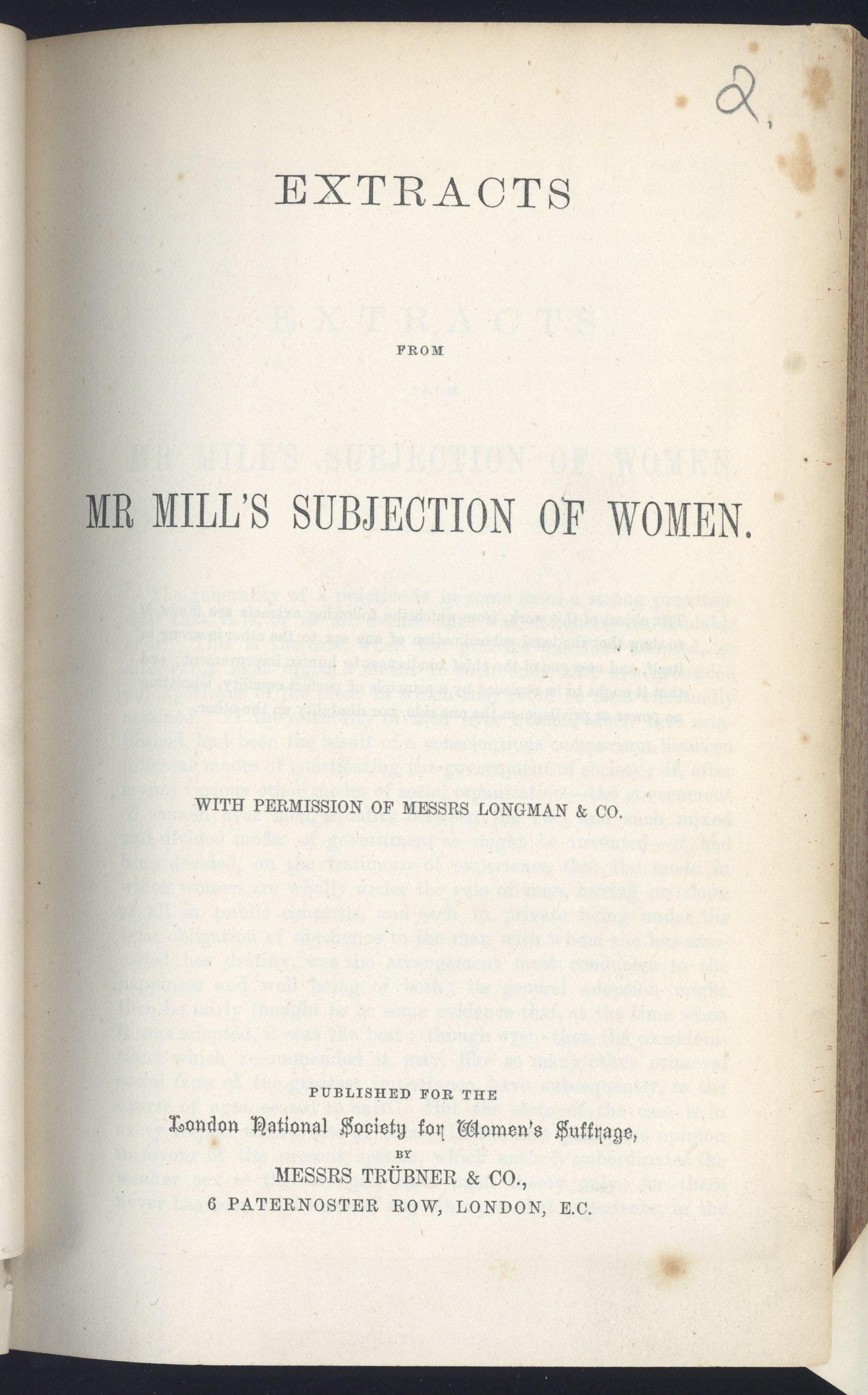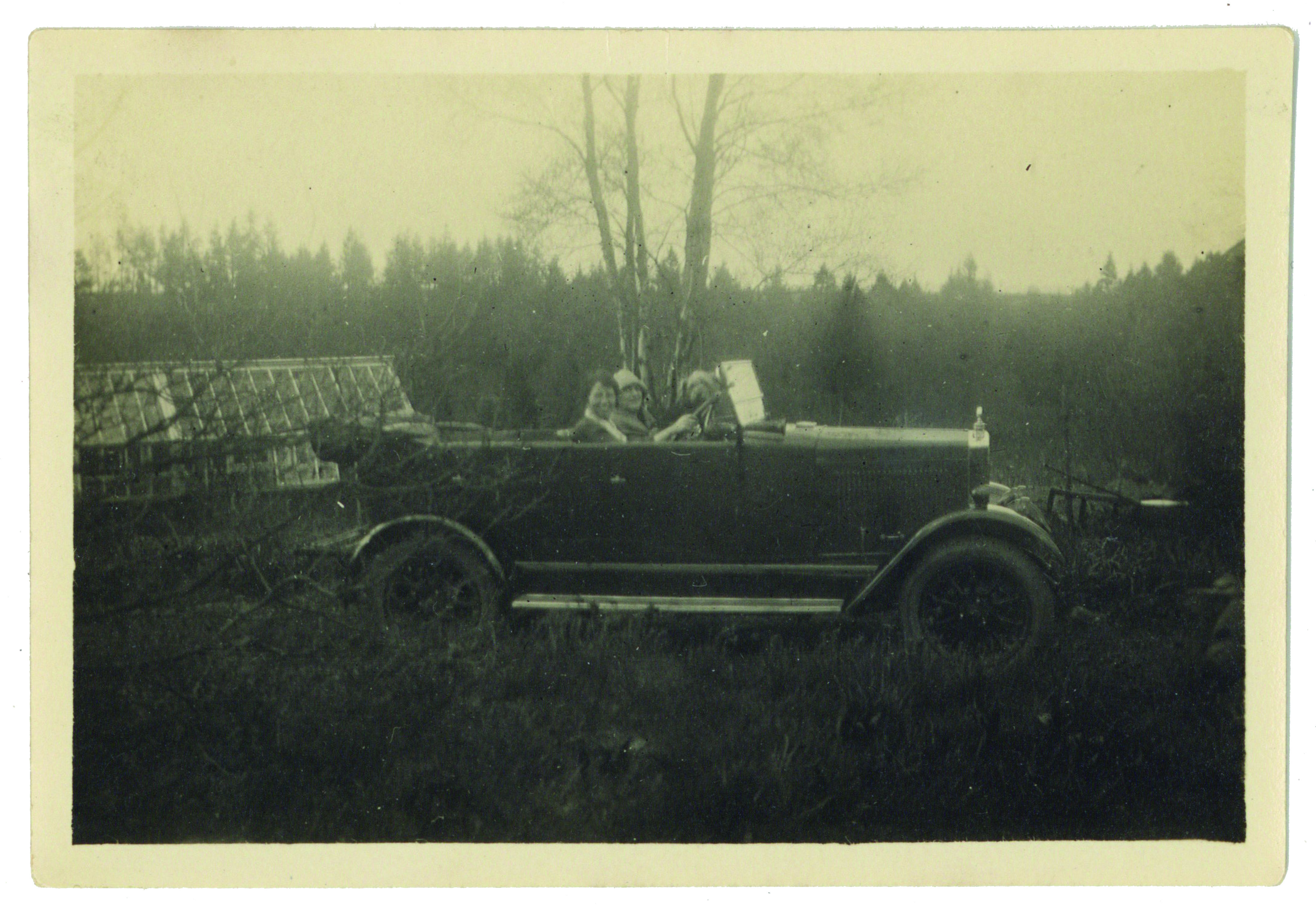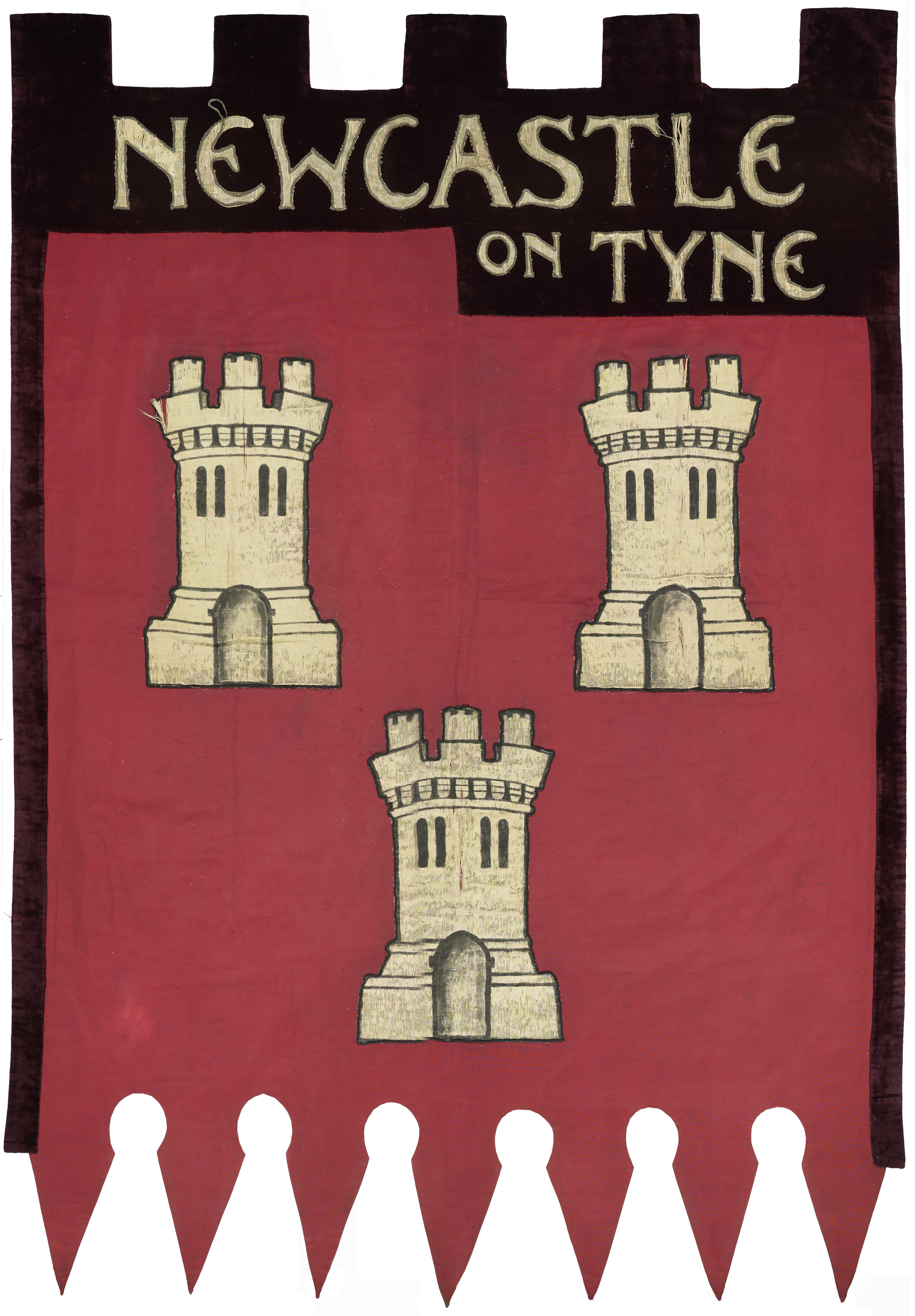
Cheque found in ‘Mr Mill’s Subjections of Women’, from Joseph Cowen to the London Society for Women’s Suffrage (Cowen Tracts, V.40 n.2)
As students of the Museum and Heritage Studies Masters course at Newcastle University, we recently undertook a 30-day work placement with the Special Collections team at Newcastle University Library. The main focus of this placement was to research and develop a temporary exhibition showcasing some of the archival material held in Special Collections.
This year marks the centenary of the 1918 Representation of the People Act, which granted some women the right to vote in this country for the very first time, and we decided to take this as our inspiration for the exhibition. Entitled, ‘The North’s Forgotten Female Reformers’, the exhibition celebrates the involvement of Northern women in movements which fought for various causes, including female suffrage, education, homosexual equality and foreign policy.
Researching the exhibition has allowed us to explore a range of archives held in Special Collections but to begin our research, we read some of the printed pamphlets contained in the Cowen (Joseph) Tracts to provide some context and understanding of the attitudes the British public had regarding women’s suffrage and their place in society. Whilst looking for one particular pamphlet entitled, ‘Mr Mill’s Subjection of Women’, we made an interesting and unexpected discovery. Nestled in the first page of this pamphlet – perhaps to mark the page – was a receipt for a cheque for one guinea made out to the London National Society for Women’s Suffrage (LNSWS) from Joseph Cowen himself.
The LNSWS was formed in 1867 and was one of the earliest Suffrage societies. Cowen is remembered as a well-known politician and MP for Newcastle upon Tyne who was interested in the social, educational, economic and political issues of his day. The discovery of his cheque is tangible evidence that he was an active supporter of women’s suffrage. The discovery of this item in a volume of Tracts adds further significance, as this collection of tracts was Cowen’s own collection of pamphlets and articles which reflected his personal interest in the social, educational, political and economic issues of the day, including foreign policy, women’s rights, religion, education and public health.
Cowen’s cheque can be seen in the exhibition, ‘The North’s Forgotten Female Reformers’, curated by the two Museum and Gallery Studies students, alongside many other treasures from Newcastle University’s Special Collections and Archives. The exhibition is on show on Level 2 of the Robinson Library from Monday 6th of August.
Written by two Art Gallery, Museum and Heritage Studies Masters students, Katie Cumming and Mariance Spence, whilst undertaking a 6 week placement to create ‘The Norths Forgotten Female Reformers’ exhibition.




